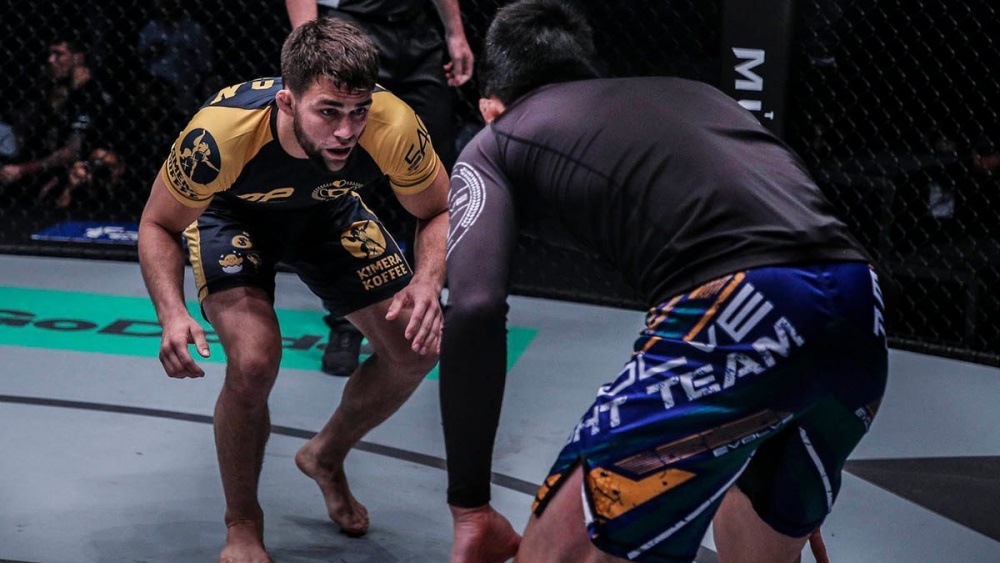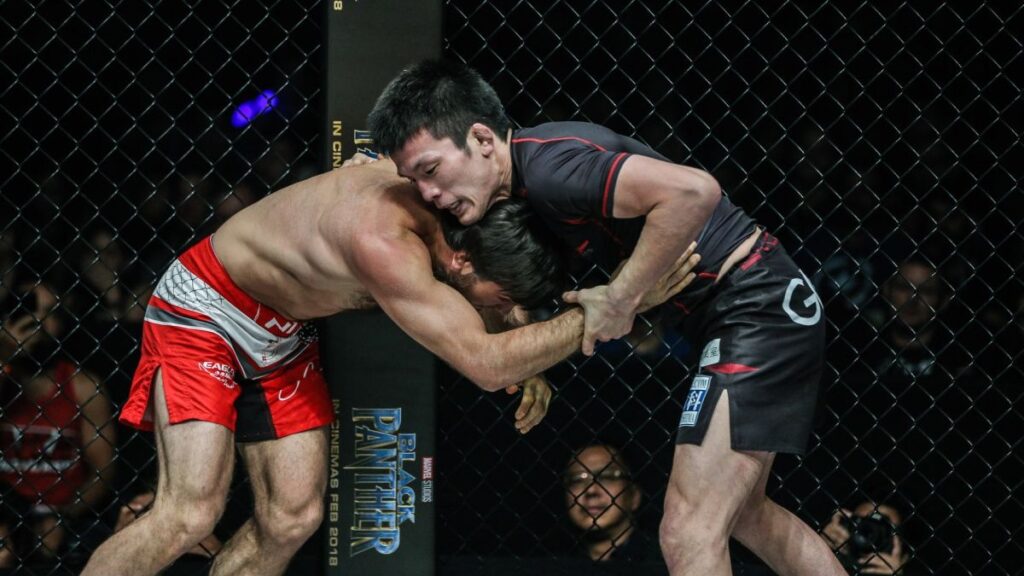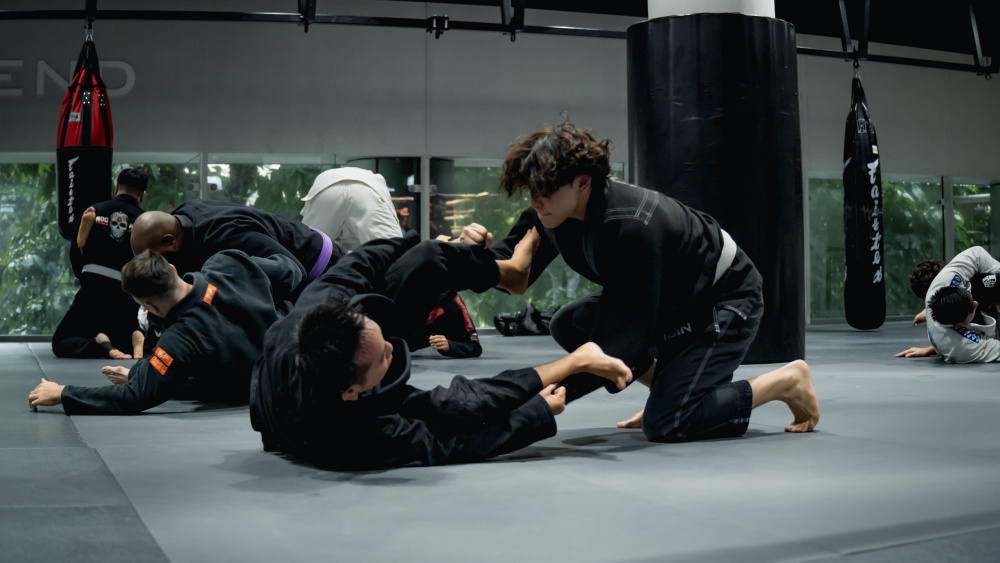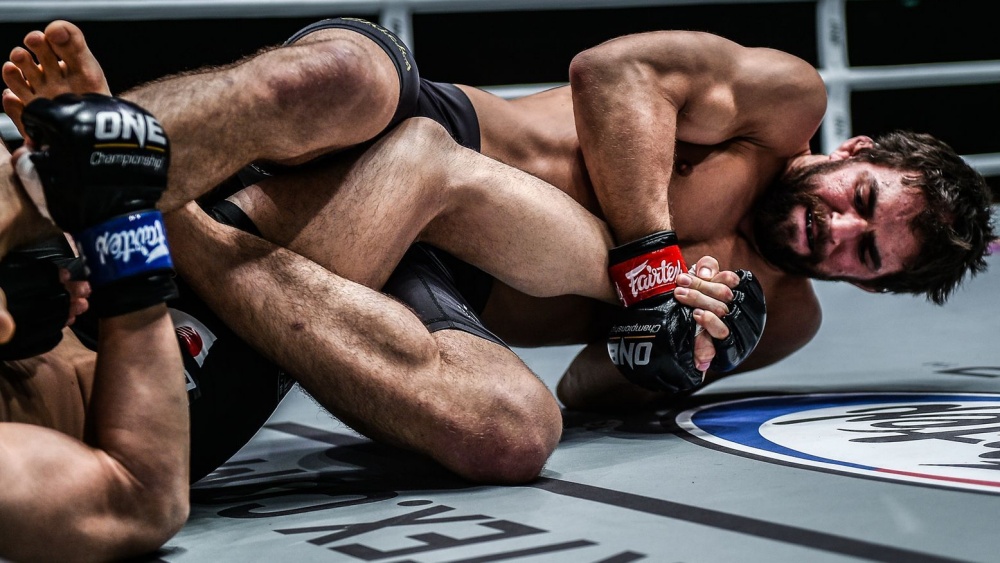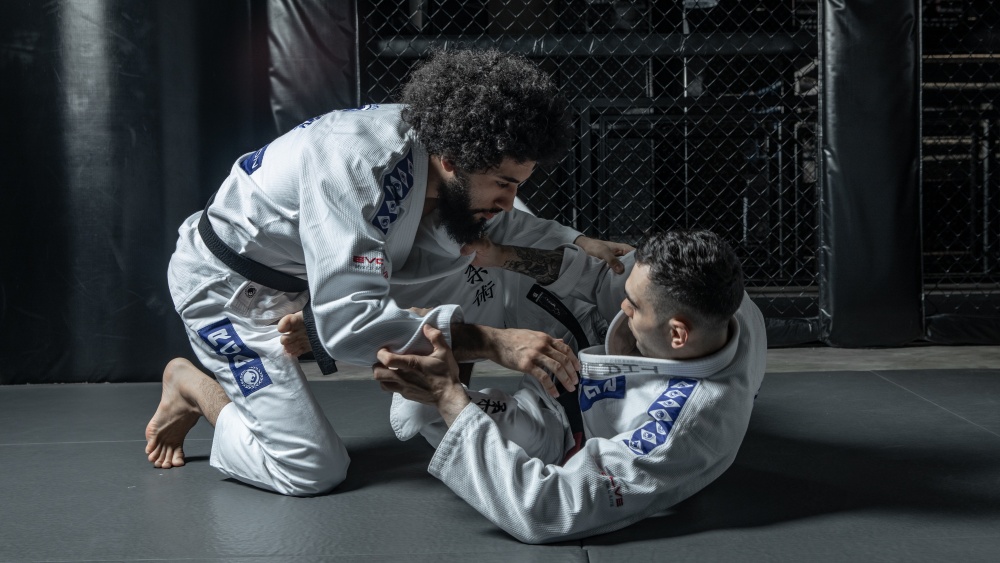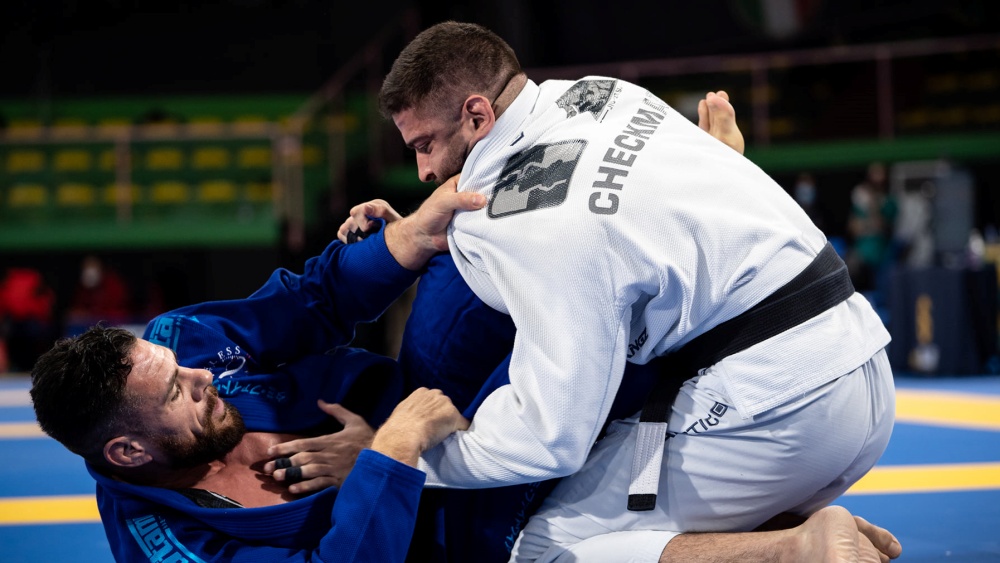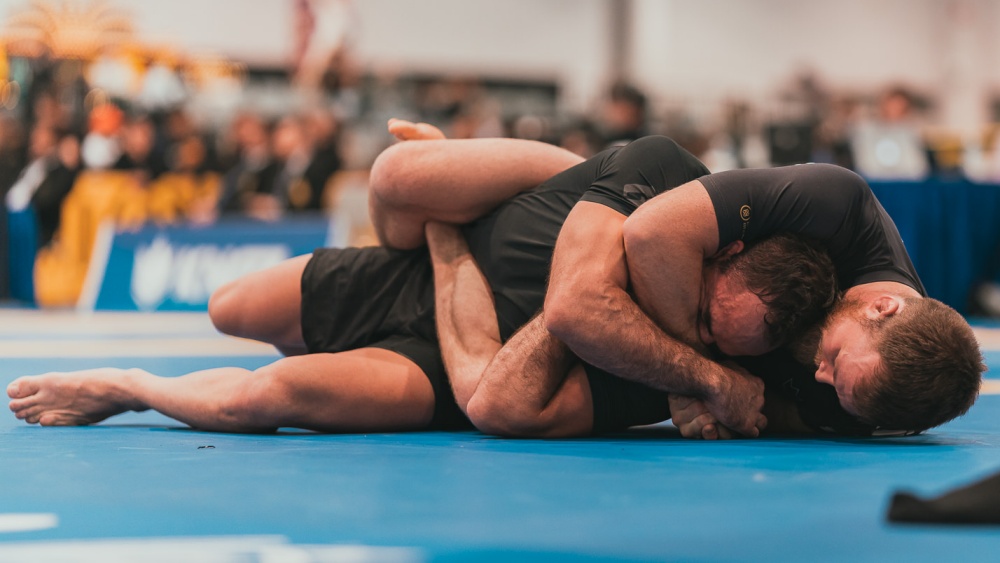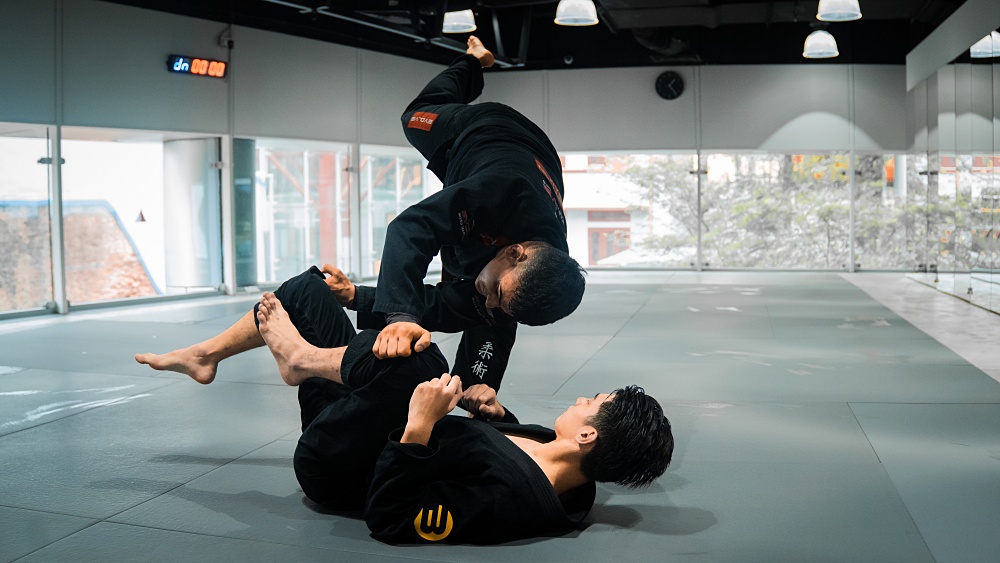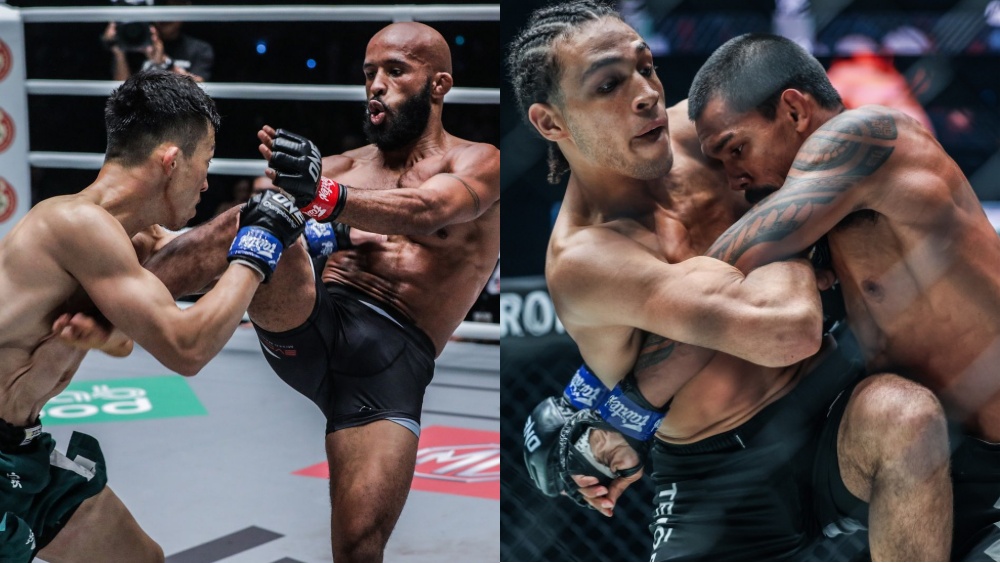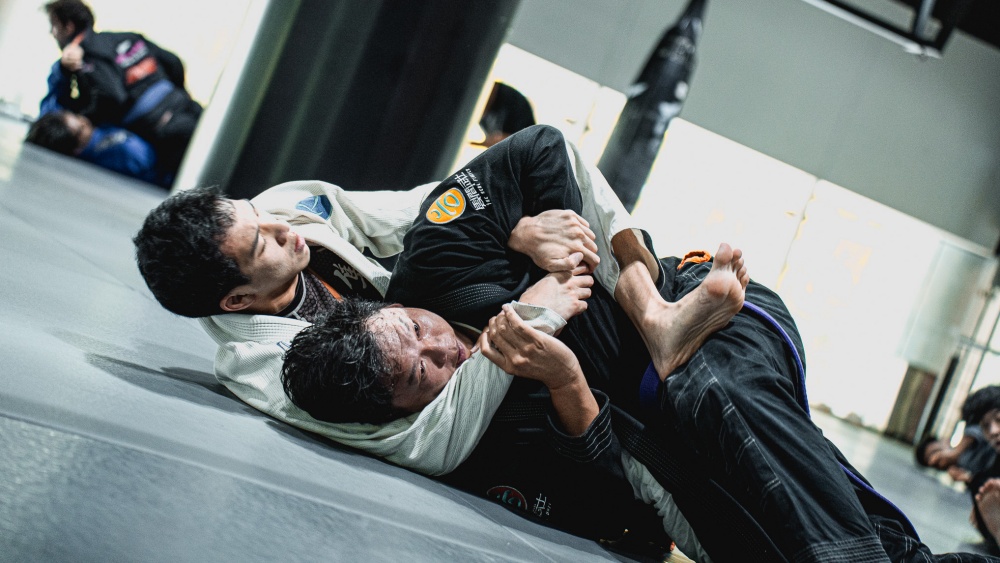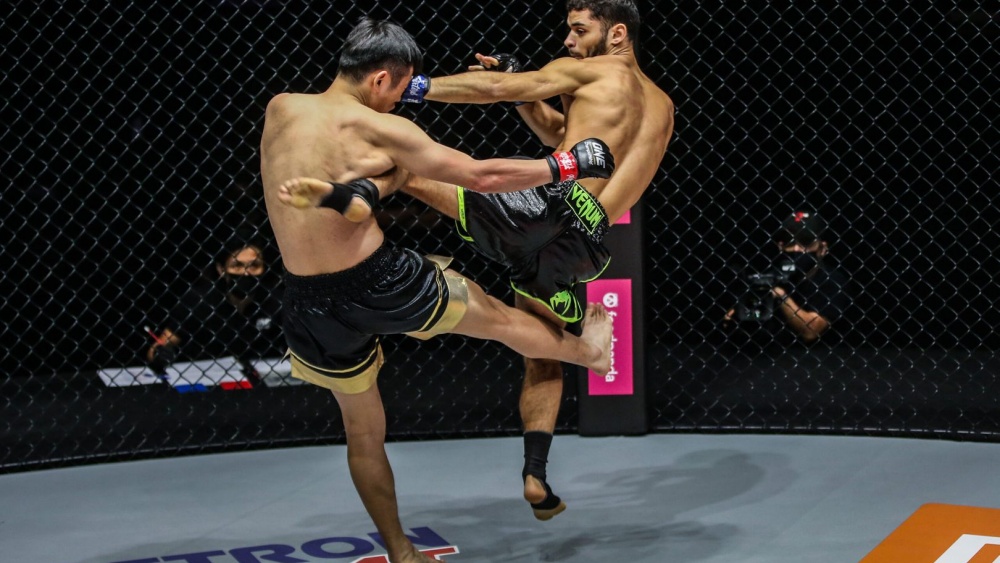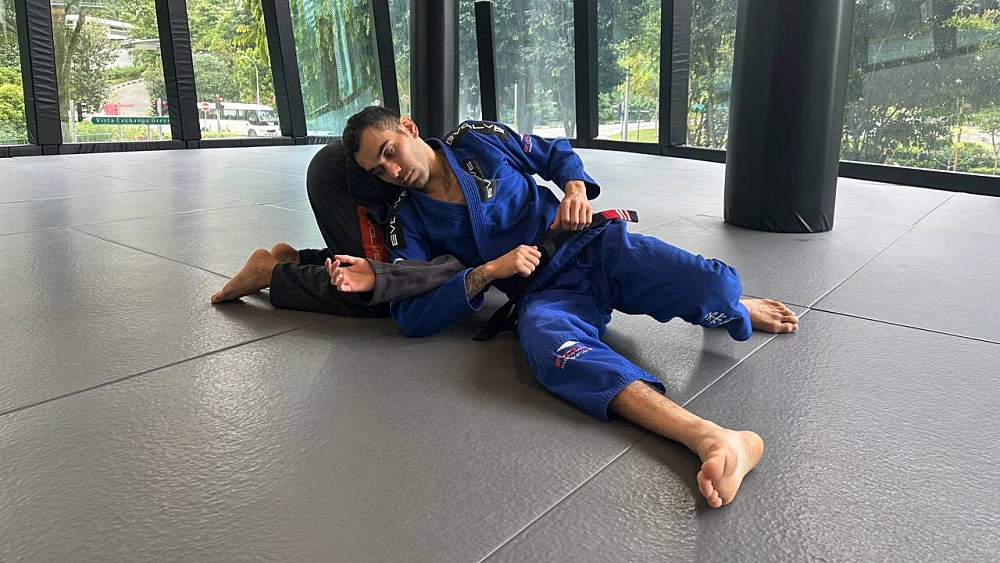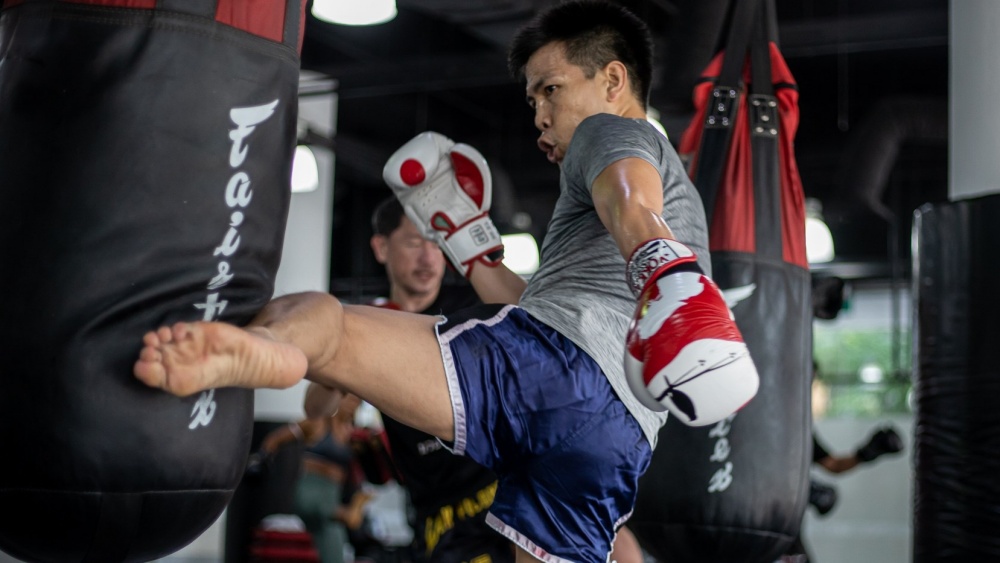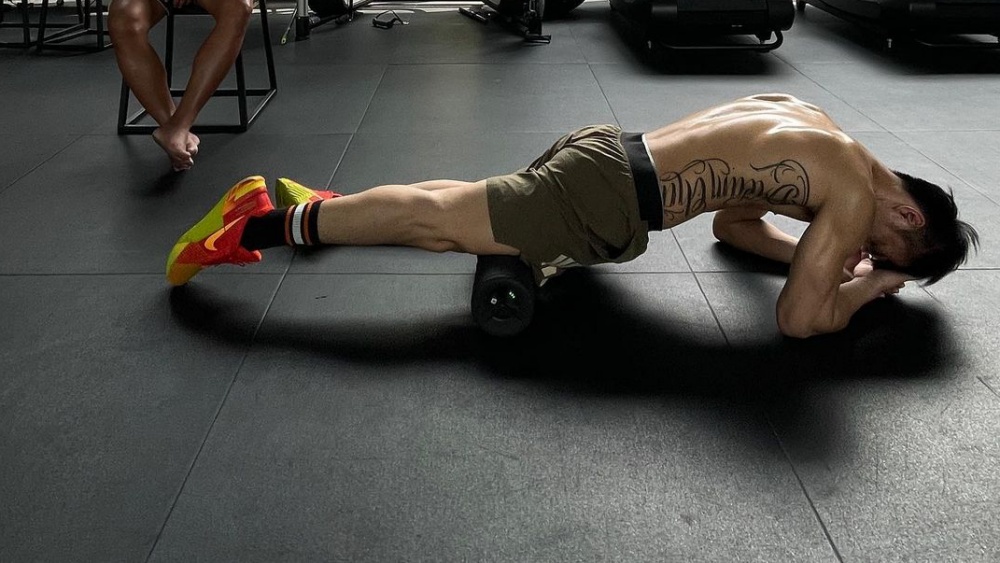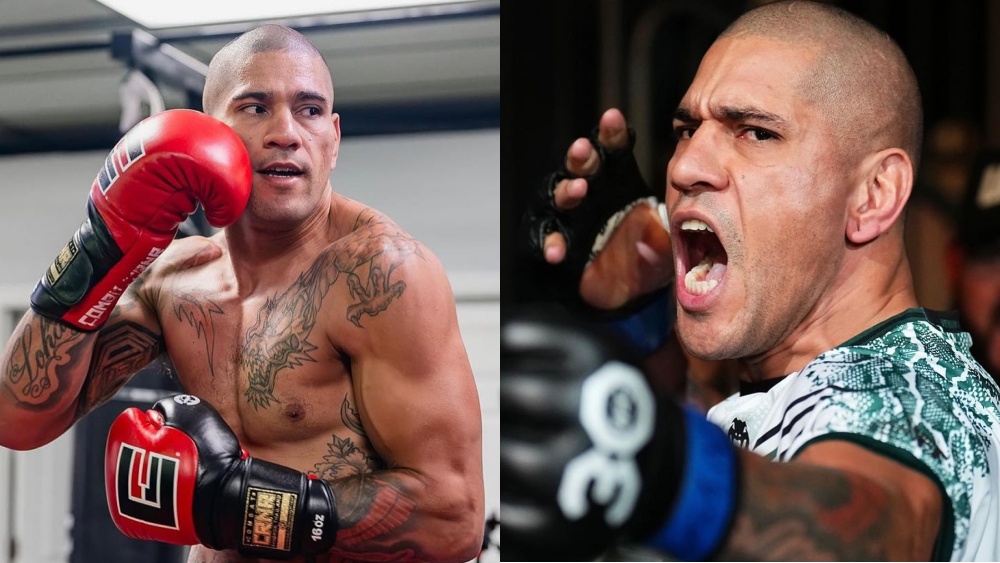Every match in BJJ, whether gi or no-gi, starts from the standing position. Grapplers must know how to take the fight to the ground, as butt scooting may not always be the best option. In this article, we will talk about ways on how to build a basic standup game for no-gi BJJ.
The Standup Game In BJJ
The standup game in BJJ with the gi on is different compared to no-gi because of the availability of the grips. In gi BJJ, grapplers can grab the opponent’s collar, sleeves, and pants to apply grips and set up throws or takedowns. In no-gi, the gripping advantage that comes from the gi is nonexistent.
Grapplers will have to set up their throws or takedowns by grabbing the opponent’s body and establishing a dominant grip. This can be difficult for grapplers when they reach the later stages of the match as the opponent, and the mats can become slippery, making it easier for opponents to escape submissions or retain guard. This is the reason great control is required in no-gi grappling.
Adding a solid base of judo or wrestling will significantly boost your standup game for BJJ. Wrestling can be a dominant art to assimilate for standup for no-gi, since there will be minor adjustments, and grapplers should only be wary of potential submissions. Grapplers who wish to incorporate judo into their no-gi standup will have to adjust to the gripping details as some judo techniques require specific gi grips.
Guide For A Basic Standup Game In No-Gi
Every grappler should have at least one takedown in their arsenal that they can perform efficiently. Knowing how to fight on the ground is one thing, but knowing how to take the fight to the ground is another. The following are the things you need to work on building a basic standup game in no-gi BJJ.
1) Learn A Takedown
Takedowns, along with controlling tactics, play a dominant role in the no-gi standup game. Build your foundation by learning simple takedowns such as the single and double leg, to begin with. As a beginner, the goal is not to learn a lot of takedowns. Although it has its benefits, the focus should be to be as efficient as possible in one takedown, which you can chain with other techniques as you progress.
As shown by Andre Galvao, a single-leg takedown is an example of a simple takedown that you can add to your standup game. Takedowns in BJJ don’t have to be complicated. It is important to keep in mind that in BJJ, doing certain takedowns opens you to submissions such as the guillotine, darce, or Peruvian necktie.
Besides takedowns, you may also try learning throws such as the harai goshi, as Shintaro Higashi shows. Throws done with bad technique can lead to injury; therefore, it requires a lot of dedicated practice and guidance. It is not always advisable for beginners to learn throws, but it can be your focus if you are not into takedowns.
A basic knee tap to apply kuzushi, or a head snap down partnered with an underhook to get the front headlock, and then dragging your opponent down with your body weight may also do the work of taking the opponent to the mat.
2) Always Secure Grips
It is crucial that you secure grips to control and pressure your opponents. Applying a powerful collar tie that goes over the other ear of the opponent allows you to dominantly control the head. As John Danaher famously said, the ability to control the head will give you leverage that can be used to control the whole body.
An aspect of the standup game that is often neglected is grip fighting. Grip fighting is the initial part of the standup game. It is where you apply grips to your opponent to set up your throws or takedowns. Ideally, in the standup, you must be able to control the wrist or get past the hands of the opponent who aims to immobilize your hands to get a collar tie or a body lock.
3) Defense And Counterattacking
More than takedowns, you must know how to defend yourself against a takedown and set up counterattacks. Knowing how to stop takedowns with a proper sprawl and heavy hips will more likely allow you to counterattack. Most of the time, successfully stopping an opponent with a sprawl will give you better chances of maintaining your position, leaving your opponent open to counterattacks.
Takedowns can also be defended by grabbing a whizzer and doing throws like the uchi mata as a counterattack. Performing throws to counter takedowns is a way to use the opponent’s momentum against him.
One of the simplest ways to counter a takedown attempt of an opponent is with the use of sacrifice throws such as the sumi gaeshi. Sumi gaeshi is done using a front headlock and a single butterfly hook, rolling the opponent and possibly landing to the mount.
4) Shadow Wrestling
Similar to shadow boxing, shadow wrestling is focused on drilling wrestling movements and other standup techniques. It aims to solidify your standup because shadow wrestling allows you to practice common movements with no resistance. Typical shadow wrestling drills involve lateral flow movements, circling around the mat, shooting takedowns, sprawls, hand posting, and doing hand fighting motions like the arm drag.
Just like any other drill, you mimic the things that you will perform. It is important to keep your head level as the dangers of getting submitted with chokes are always present. Avoid the habit of looking down while performing a takedown.
Final Thoughts
The standup game is one of the most essential areas of grappling as a whole. Although BJJ is primarily focused on ground fighting, grapplers should know how to take the fight to the ground. Taking the fight to the ground requires relentless effort and is often more exhausting, especially in no-gi. For this reason, it is vital to work on conditioning while you develop your technique.
You may also like:
Here’s What You Need To Know About Grip Fighting In No-Gi BJJ
